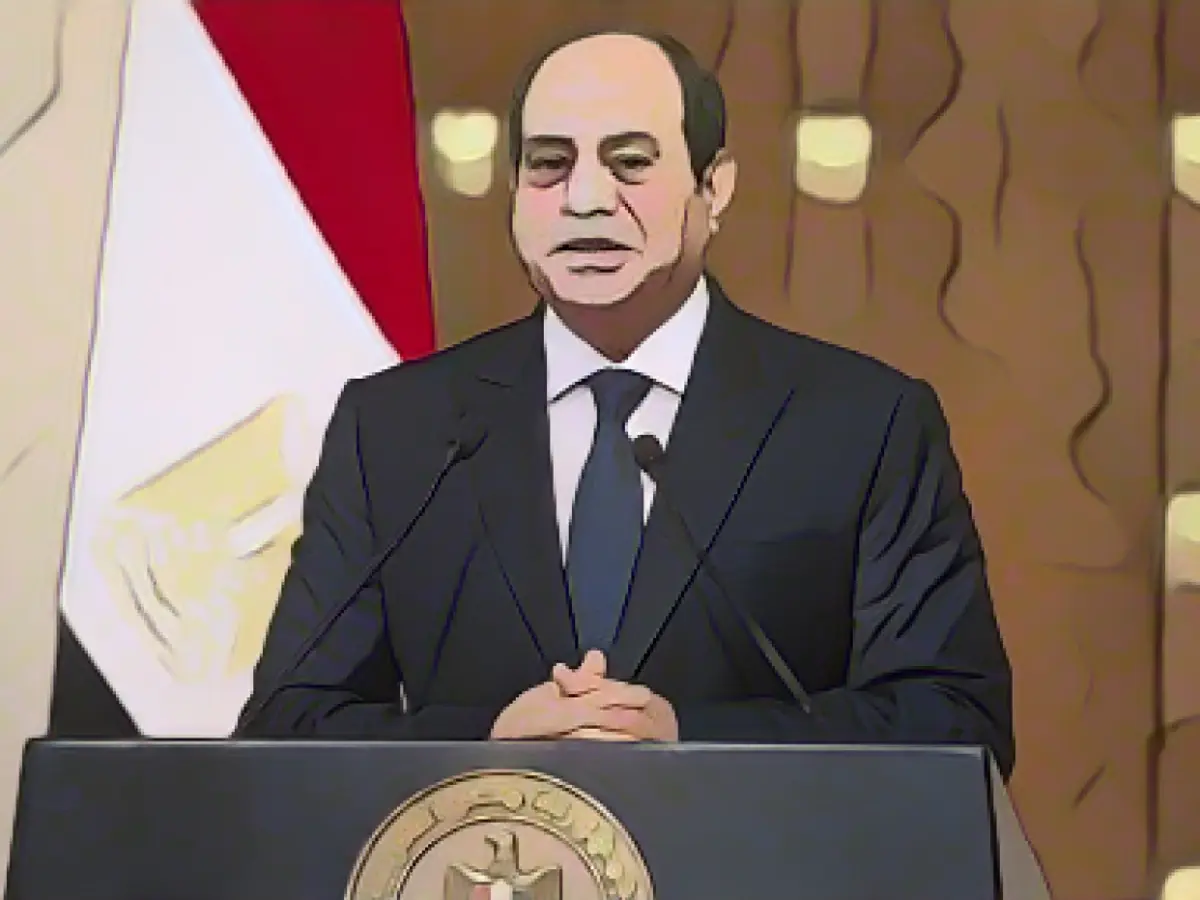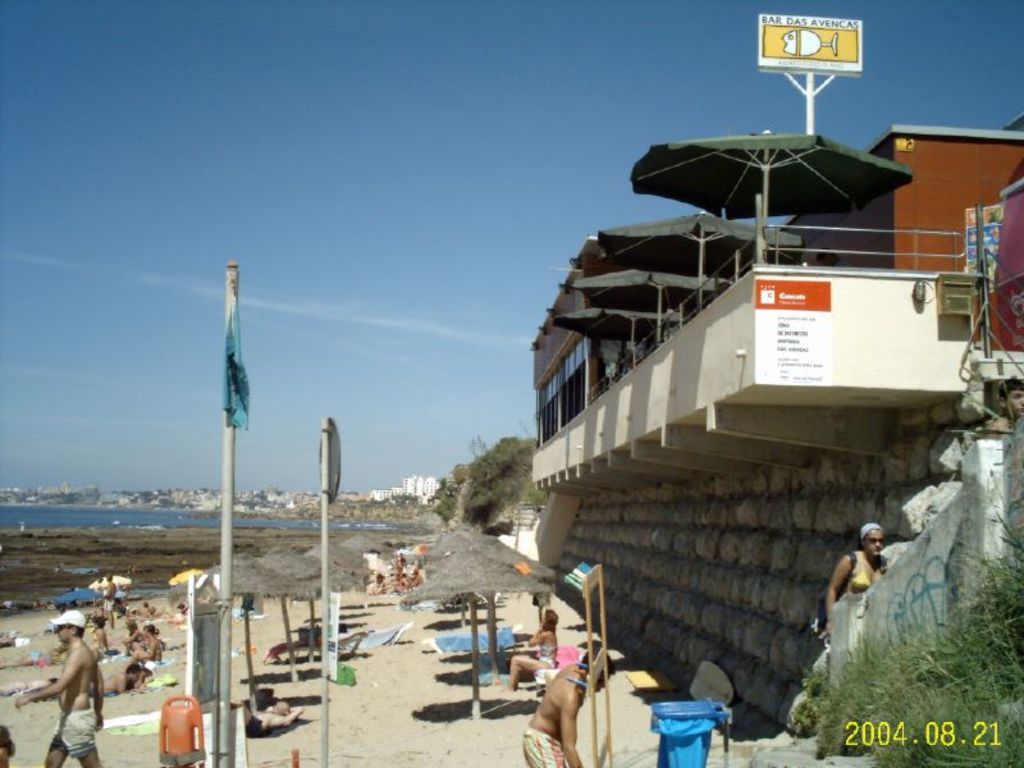Egypt's Leader Sisi Wins Third Term with Over 89% of Votes
Egypt's presidential election takes place amidst economic turmoil and attempts to contain the potential threat of conflict in Gaza, which borders Egypt's Sinai Peninsula.
Many voters expressed their support for Sisi, viewing him as a bastion of stability in the unruly region. This argument proved valid, as Gulf and Western allies financially backed his government. The voting process in Egypt spanned three days beginning December 3rd. Efforts to boost voter participation between October and November 12th, according to election authorities, saw a 66.8% turnout, almost twice that of the last presidential election in 2018.
Other candidates ran for office, but their familiar strategies of mirroring Sisi's approach or keeping quiet about his controversial policies ensured minimal competition for Egypt's leader. Critics insist Sisi manipulated the government and security apparatus to eliminate serious opposition contenders.
Hossam Bahgat, head of the independent Egyptian Initiative for Individual Rights (EIPR), described the electoral process as a charade, as Sisi monopolized state and security resources to ensure only handpicked opponents entered the race.
"There were no elections. Sisi utilized the entire state and security apparatus to prevent credible candidates from running," Bahgat stated. He further lamented that Sisi's "handpicked challengers simply mirrored his approach or remained silent, questioning neither his catastrophic policy nor the process."
Egypt's official media agency defended the election, asserting that it represented progress towards political pluralism. Authorities also denied allegations of election rule violations.
Luxury and Excess
Born into a military family, Sisi seized power in 2013, overthrowing Egypt's democratically elected first president, Mohammed Morsi of the Muslim Brotherhood. Since then, Sisi has ruthlessly purged political dissent across the political spectrum.
First elected president in 2014 and re-elected in 2018 with 97% of the vote, Sisi pushed for the constitution's amendment to extend the presidential term from four to six years, enabling him to seek a third term in office.
His supporters praise Sisi for securing the country, while several groups have benefited from his leadership. However, some criticize him for his lavish lifestyle during economic hardship, with Egypt's debt soaring and living costs skyrocketing.
Many admire the impressive infrastructure, including the new capital city erected from scratch in the Egyptian desert east of Cairo. Others see it as an extravagant indulgence when other essential matters demand attention.
"Security is paramount," said Nourhan ElAbbassy, deputy secretary-general of the Youth Wing of Sisi's Homat Alwatan party. "We want to see more women in key positions, more qualified female ministers in cabinets, and changes to personal status laws that address issues like marriage, divorce, and child custody."
The regime has attempted to address human rights criticism by launching a national dialogue and releasing high-ranking prisoners. However, critics view these initiatives as largely cosmetic.
Many Egyptians appeared apathetic towards the election, viewing it as a foregone conclusion.
Reports from Reuters covering the polls in Cairo, Giza, Suez, and Sinai revealed some voters being transported to polling stations on buses, while others lingered outside waving flags or transparencies, listening to patriotic music. Elsewhere, polling stations seemed calm.
Reuters reporters also observed attendees in Giza receiving bags of flour, rice, and other basic food items. Some voters claimed pressure from employers to vote or received financial incentives for casting their ballots.
State media argued that any offers of money or gifts as inducements for votes would be considered bribery, punishable by fines or prison sentences.
Further Reading:
International reactions to Sisi's re-election have been complex, reflecting both the domestic and global contexts. Here are some key points to consider:
- Domestic and Regional Concerns:
- Economic Challenges: Egypt faces significant economic troubles, with high inflation, decreased Suez Canal revenues, and rising costs and stagnant wages pushing many Egyptians into poverty and discontent.
- Human Rights Criticism: Sisi's regime has drawn criticism from international human rights groups over its handling of dissent and harassment of activists, leading to demands for democratic reforms and improvements to human rights conditions in Egypt.
- International Reactions:
- US Policy Shifts: The return of former U.S. President Donald Trump to the White House introduced new challenges for Sisi's regime, as his Middle East peace plan posed potential risks to Egypt's strategic interests in the region.
- Biden Administration Action: Under President Joe Biden, the U.S. took a more moderate approach to Egypt, offering financial assistance and easing pressure on human rights concerns, providing Sisi with a more favorable environment and allowing him to maintain control over strategic areas.
- Global Financial Support: Egypt received significant financial assistance from organizations like the IMF and Gulf countries, aiding in economic stabilization, implementing essential reforms, and bolstering the Middle Eastern state's position in the global arena.
- Regional Dynamics:
- Turkey-Egypt Alliance: Egypt has strengthened its strategic ties with Turkey as a counterbalance to Israel and the Gulf states, allowing it to project its influence in the region and signal defiance against Israeli policies.
- Gulf States' Concerns: The prospect of a Turkey-Egypt alliance represents a nightmare scenario for Gulf states, which view an expanding Turkish presence as a potential threat to their regional dominance and stability.
- Public Opinion and Protests:
- Egyptian Public Discontent: Despite Sisi's re-election, domestic discontent with ongoing economic hardships and worsening human rights conditions may lead to potential protests in the future, highlighting the need for Sisi's regime to address these critical challenges.
In summary, the international response to Sisi's re-election reflects both Egypt's internal economic and human rights developments as well as the geopolitical factors at play. While certain international actors have offered financial support and eased human rights pressure, others pose significant risks to Sisi's regime, particularly in light of changing U.S. policies under the new administration.








